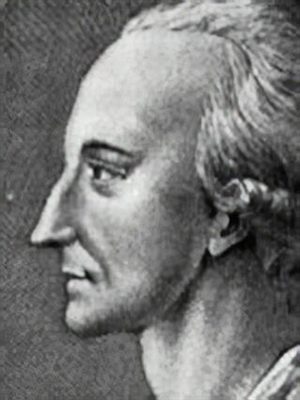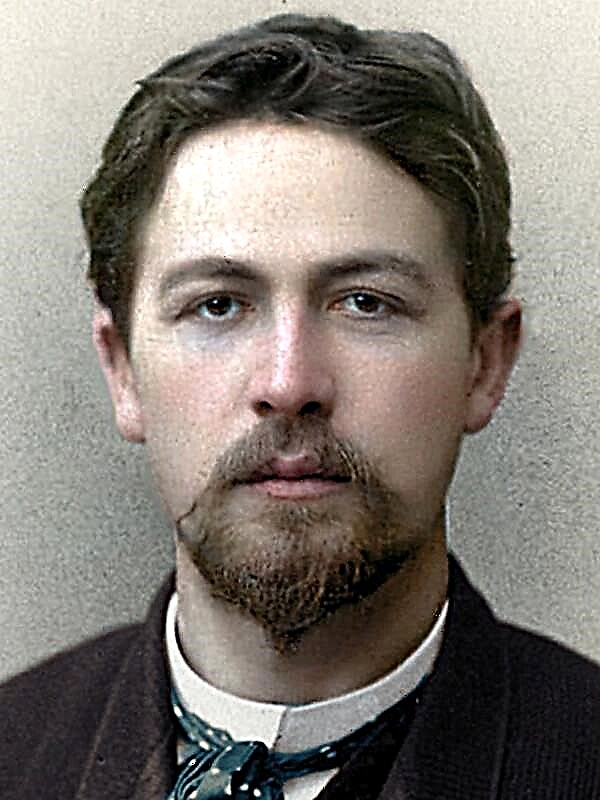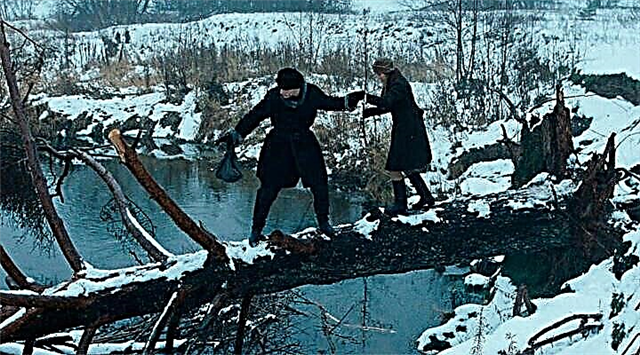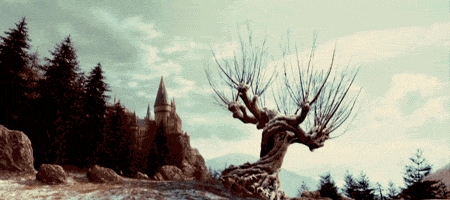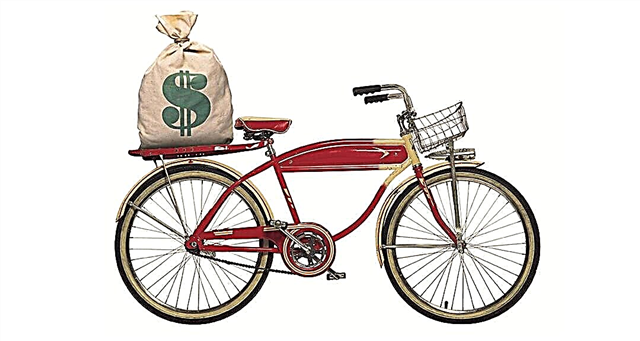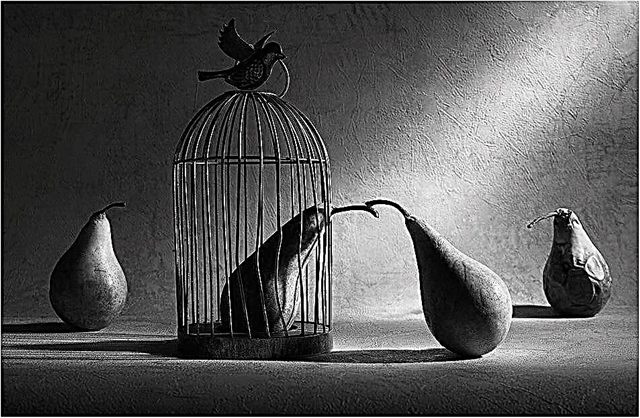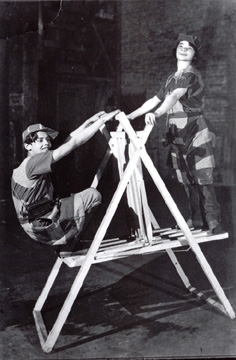Princess Trubetskaya
On a winter night in 1826, Princess Yekaterina Trubetskaya went after Siberia to her Decembrist husband. The old count, the father of Ekaterina Ivanovna, with tears streams a bear cavity into a cart, which his daughter should take away from home forever. The princess mentally says goodbye not only to her family, but also to her native Petersburg, which she loved more than all the cities she saw, in which her youth happily passed. After her husband’s arrest, Petersburg became a fateful city for her.
Despite the fact that at each station the princess generously awards the Yamskoye servants, the journey to Tyumen takes twenty days. On the way, she recalls her childhood, careless youth, balls in her father’s house, which attracted all the fashionable light. These memories are replaced by pictures of a honeymoon in Italy, walks and conversations with her beloved husband.
Travel impressions make a heavy contrast with her happy memories: in reality the princess sees the kingdom of the poor and slaves. In Siberia, a miserable town comes across three hundred miles, the inhabitants of which are sitting at home because of a terrible frost. “Why, damned country, did Ermak find you?” - Trubetskaya thinks in despair. She understands that she is doomed to end her days in Siberia, and recalls the events preceding her journey: the Decembrist uprising, a meeting with her arrested husband. Horror freezes her heart when she hears the piercing groan of a hungry wolf, the roar of the wind along the banks of the Yenisei, the angry song of a foreigner, and realizes that she may not reach the target.
However, after two months of traveling, having parted with the sunk satellite, Trubetskaya nevertheless arrives in Irkutsk. The Irkutsk governor, from whom she asks horses to Nerchinsk, hypocritically assures her of her perfect devotion, recalls the father of the princess, under whose leadership he served seven years. He persuades the princess to return, appealing to her affectionate feelings - she refuses, recalling the sanctity of conjugal duty. The governor scares Trubetskoy with the horrors of Siberia, where "people are rare without a stigma, and those are callous with their souls." He explains that she will not have to live with her husband, but in the common barracks, among the convicts - but the princess repeats that she wants to share all the horrors of her husband’s life and die next to him. The governor demands that the princess sign a renunciation of all her rights - she without hesitation agrees to be in the position of a poor commoner.
After holding Trubetskaya for a week in Nerchinsk, the governor declares that he cannot give her horses: she must follow the foot stage, with the escort, together with the convicts. But, having heard her answer: “I’m coming! I do not care!" - the old general refuses to tyranny the princess with tears. He assures that he did this on the personal order of the king, and orders to harness the horses.
Princess Volkonskaya
Desiring to leave memories of her life to her grandchildren, the old Princess Maria Volkonskaya writes the story of her life.
She was born near Kiev, in a quiet estate of her father, the hero of the war with Napoleon, General Raevsky. Masha was the favorite of the family, she studied everything that a young noblewoman needed, and after classes she sang carefree in the garden. The old general Raevsky wrote memoirs, read magazines and asked balls, which his former associates gathered at. The queen of the ball was always Masha - a blue-eyed, black-haired beauty with a thick blush and a proud tread. The girl easily captivated the hearts of the hussars and the lancer, who stood with shelves near the Raevsky estate, but none of them touched her heart.
Masha was barely eighteen years old, her father found her groom - the hero of the war of 1812, wounded near Leipzig, beloved sovereign General Sergei Volkonsky. The girl was embarrassed that the groom was much older than her and she did not know him at all. But the father strictly said: “You will be happy with him!” - and she did not dare to object. The wedding took place two weeks later. Masha rarely saw her husband after the wedding: he was constantly on official trips, and even from Odessa, where he finally went to rest with his pregnant wife, Prince Volkonsky was suddenly forced to take Masha to his father. The departure was alarming: the Volkonsky were leaving at night, burning some papers before that. Volkonsky was no longer able to see his wife and first-born son under their own roof ...
The birth was difficult, for two months Masha could not recover. Soon after her recovery, she realized that her family was hiding her husband’s fate from her. The fact that Prince Volkonsky was a conspirator and was preparing the overthrow of the authorities, Masha learned only from the verdict - and immediately decided that she would go after her husband to Siberia. Her decision only strengthened after a meeting with her husband in the gloomy hall of the Peter and Paul Fortress, when she saw a quiet sadness in the eyes of her Sergey and felt how much she loved him.
All efforts to mitigate the fate of Volkonsky were in vain; he was sent to Siberia. But in order to follow him, Masha had to withstand the resistance of her entire family. Her father begged her to feel sorry for the unfortunate child, her parents, to calmly think about her own future. After spending the night in prayers, without sleep, Masha realized that so far she had never had to think: her father made all the decisions for her, and, having gone down the aisle at the age of eighteen, she "also did not think much." Now, the image of her husband, exhausted by prison, invariably stood before her, awakening previously unknown passions in her soul. She experienced a cruel sense of her own powerlessness, the torment of separation - and her heart told her the only solution. Leaving the child without hope of ever seeing him, Maria Volkonskaya understood: it’s better to lie alive in the grave than to deprive the husband of comfort, and then incur the scorn of his son. She believes that the old General Raevsky, who brought his sons to the bullet during the war, will understand her decision.
Soon Maria Nikolaevna received a letter from the tsar, in which he politely admired her determination, gave permission to leave for her husband and hinted that the return was hopeless. Having gathered on the road for three days, Volkonskaya spent the last night at the cradle of her son.
Saying goodbye, her father, threatened by a curse, ordered her to return in a year.
For three days, staying in Moscow with her sister Zinaida, Princess Volkonskaya became the "heroine of the day", she was admired by poets, artists, the whole nobility of Moscow. At a farewell party, she met with Pushkin, whom she had known since virgin time. In those old years, they met in Gurzuf, and Pushkin even seemed to be in love with Masha Raevskaya - although with whom he was not in love then! After he devoted wonderful lines to her in Onegin. Now, when meeting on the eve of Maria Nikolaevna’s departure to Siberia, Pushkin was sad and depressed, but admired Volkonskaya’s deed and blessed him.
On the way, the princess met convoys, crowds of prayers, government wagons, recruits; watched the usual scenes of station fights. Leaving after the first halt from Kazan, she fell into a blizzard, slept in the gate of foresters, whose door was crushed by stones - from bears. In Nerchinsk, Volkonskaya, to her joy, caught up with Princess Trubetskoy and learned from her that their husbands were being held in Blagodatsk. On the way there, the coachman told the women that he was taking prisoners to work, that they were joking, they made each other laugh - apparently, they felt easy.
Waiting for permission to see her husband, Maria Nikolaevna found out where the prisoners were taken to work, and went to the mine. The sentry yielded to the woman's sobs and let her into the mine. Fate protected her: past holes and failures she ran to the mine, where the Decembrists worked among other convicts. The first to see her was Trubetskoy, then Artamon Muravyov, Borisov, Prince Obolensky ran up; tears streamed down their faces. Finally, the princess saw her husband - and at the sound of a sweet voice, at the sight of the shackles on his hands, she realized how much he suffered. Having knelt down, she put fetters to her lips - and the whole mine froze, in holy silence sharing with Volkonsky the grief and happiness of the meeting.
The officer, who was waiting for Volkonskaya, scolded her in Russian, and her husband said after her in French: "See you, Masha, - in prison!"

